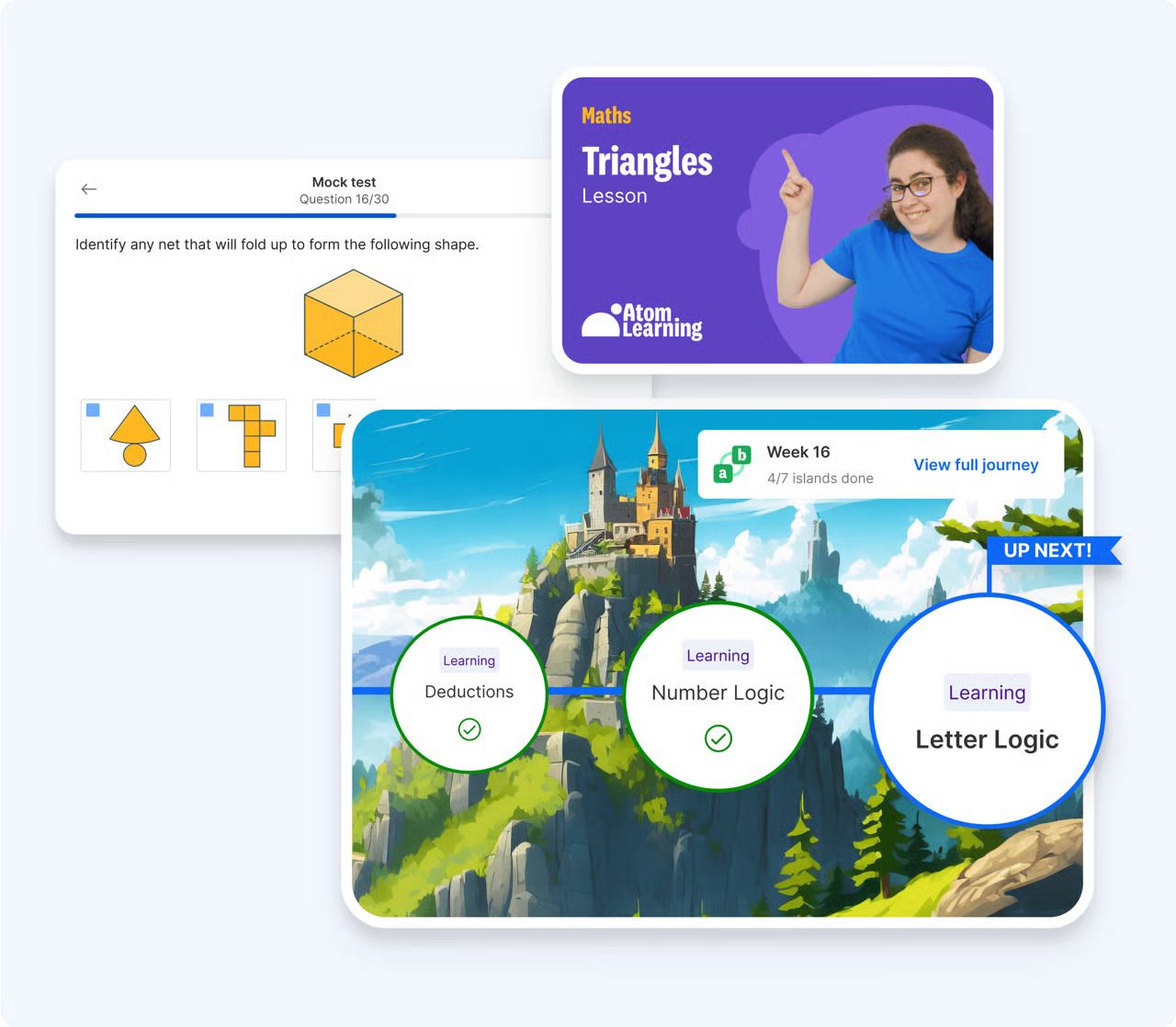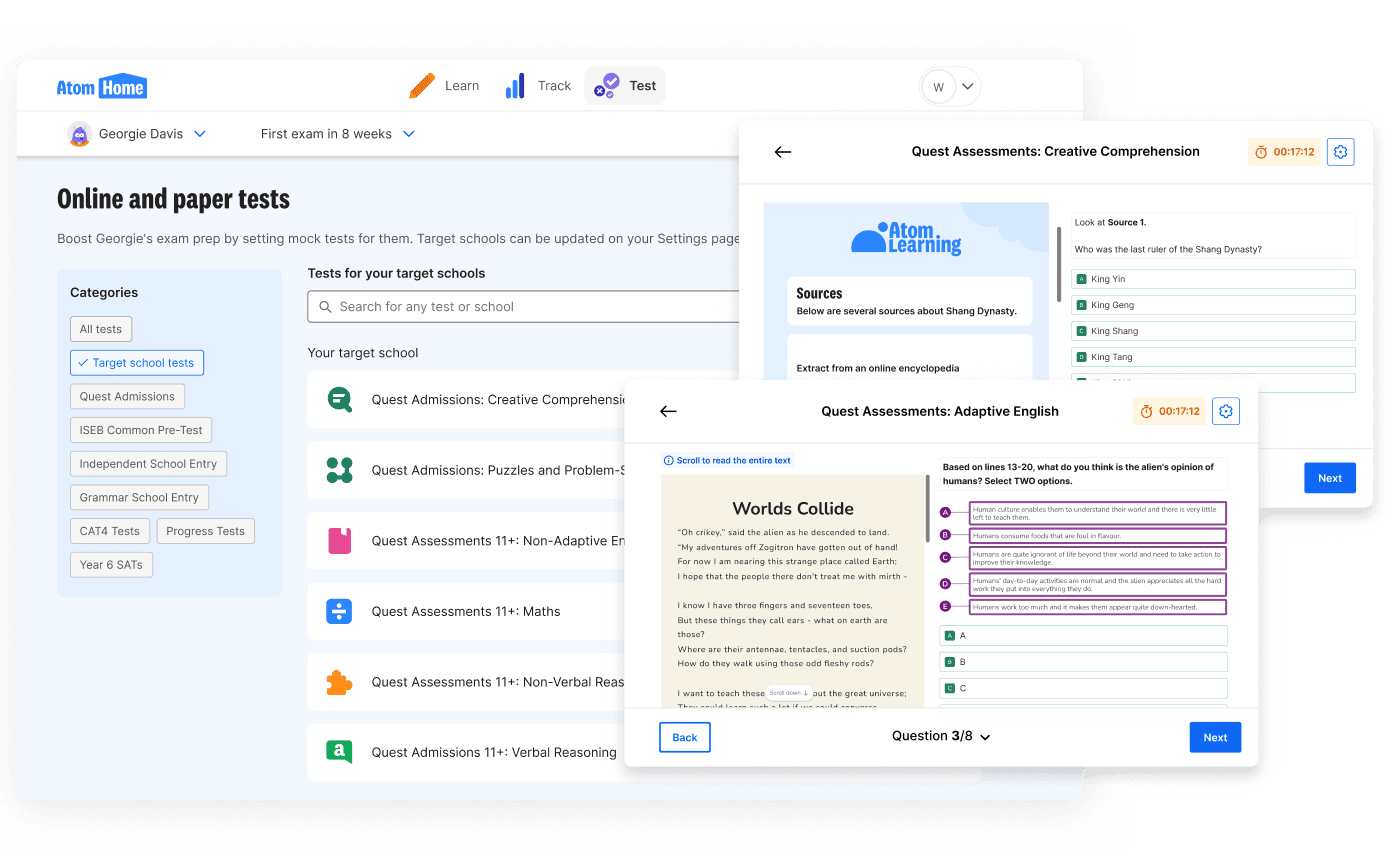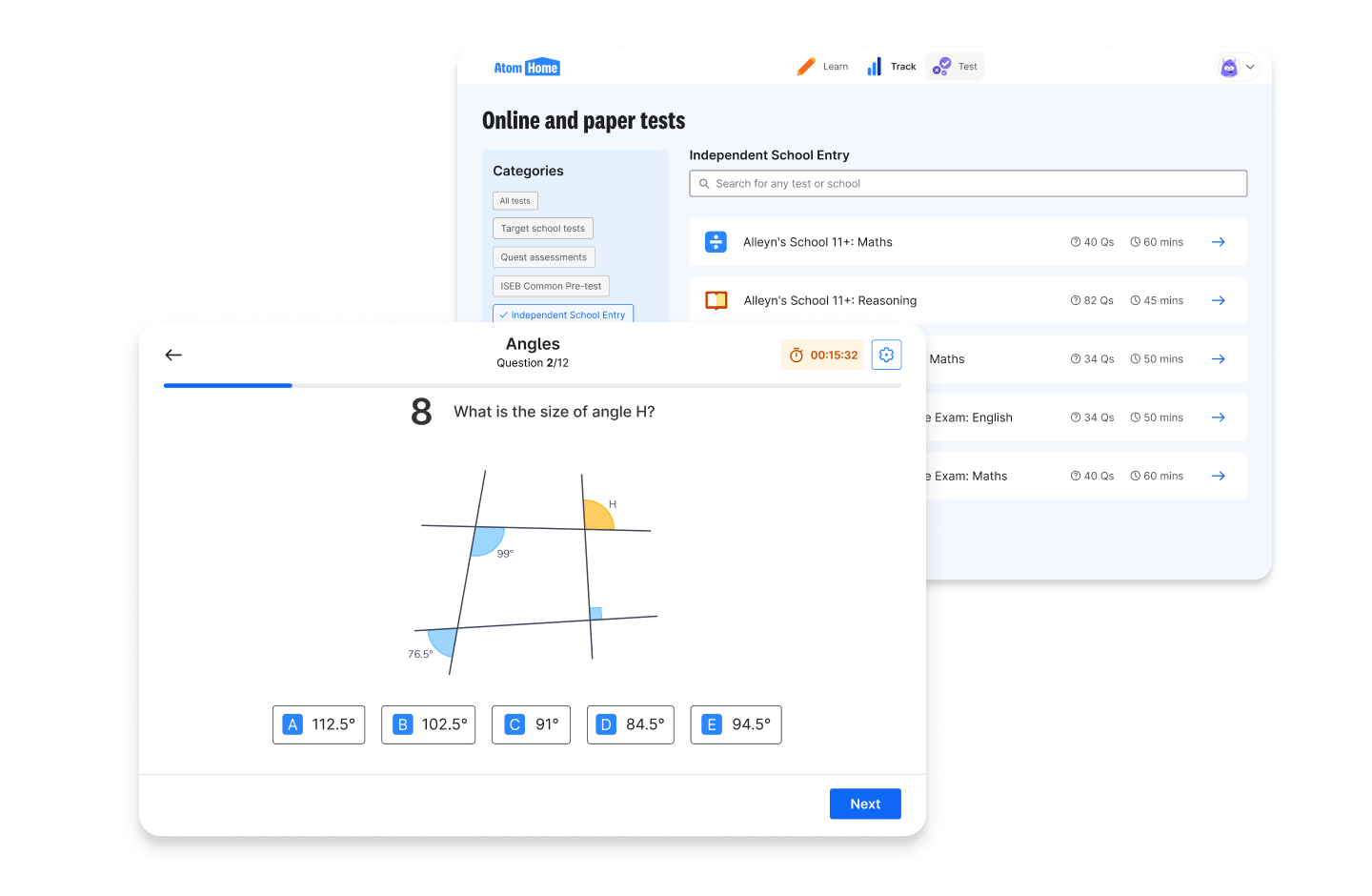If you’re thinking about applying to selective independent schools for your child, you likely have some questions about what the process looks like.
Read on to learn more about entrance exam boards, what type of tests to expect and how to prepare.
This guide will cover:
- Everything you need to know about independent school entrance exams and exam boards
- What to expect on the entrance exam for senior schools
- Timelines and further information on the exam process
- Top tips on how to prepare your child for the exam
- Free resources to help your child ace their tests!
What are independent school entrance exams?
Independent school entrance exams are sometimes used by schools to choose which children to give places to. These schools are selective, allocating places based on academic ability and potential.
It’s up to the school to decide on the type of exam they use, with many choosing to create their own bespoke assessment. Most exams test children’s abilities in core areas on the Key Stage 2 curriculum, but some test potential through subjects like reasoning and others not taught at school.
The entrance exam may cover English, maths, verbal reasoning, non-verbal reasoning, or a combination of these subjects. Plus, some exam boards cover additional topics like puzzles and problem solving or creative comprehension. Their score is then used to determine whether they are suitable for the school, with some schools also holding interviews or other additional steps.
Not every independent school uses entrance exams, but those that do might use them at several entry points, including 11+ for Year 7 entry.
What exam boards are used for independent school entrance exams?
There are several exam boards that independent schools can use for their entrance exams. Some of the most widely used exam boards are:
Quest Admissions
Quest Admissions exams are split into 2 parts, covering subjects like English, maths, verbal reasoning, non-verbal reasoning, puzzles and creative comprehension. Schools can use either Part 1 or Part 2 or a combination of both. The test consists of adaptive and non-adaptive questions to test how your child thinks, rather than just what they know.
Take a look at our guides to Part 1 and Part 2 to find out more about Quest exams.
GL Assessment
GL Assessment are typically paper-based and non-adaptive, meaning the difficulty of the questions does not adapt depending on the answers your child gives. The test may cover a combination of English, maths, verbal reasoning and non-verbal reasoning. The English and maths content covers all of Key Stage 2, including Year 6 topics that children may not yet have covered in school. Whereas verbal and non-verbal reasoning are not covered on the national curriculum.
Cambridge Select Insight
Cambridge Select Insight is a computer-based exam that consists of non-adaptive questions. It has a time limit of 1 hour and is split into 6 sections. Children can move backwards and forwards through the questions to double-check their answers. The question types include multiple choice, drag and drop and auto-complete style.
ISEB Common Pre-Test
The ISEB Common Pre-Test is an adaptive online exam, meaning the questions will become more difficult depending on how your child answers. The test will cover English, maths, verbal reasoning and non-verbal reasoning. The English and maths sections are based on Key Stage 2 learning up to Year 5. The 4 sections can be taken all at once, with short breaks in between, or at separate times.
For international students, the UKiset may be used by schools to assess students applying from overseas.
Each exam board is different. It’s important for parents to take the time to research and understand which exam (or exams) your child will be taking.

.png)







